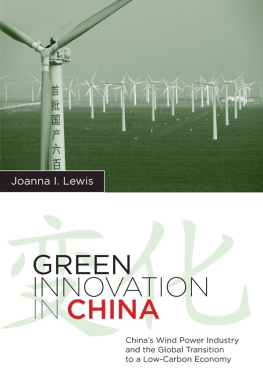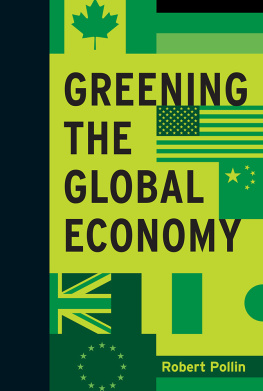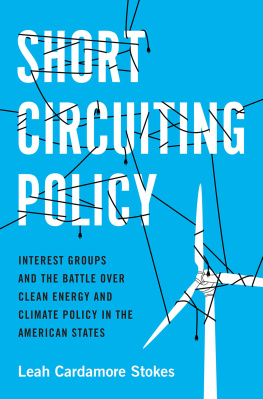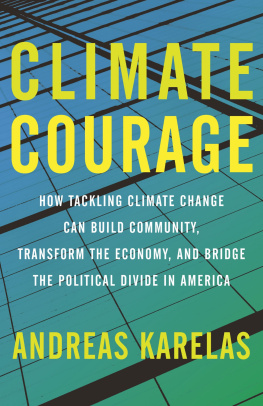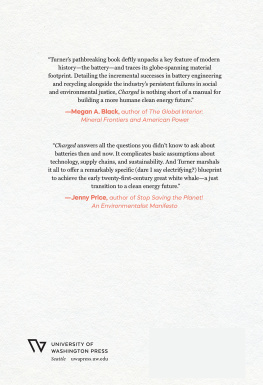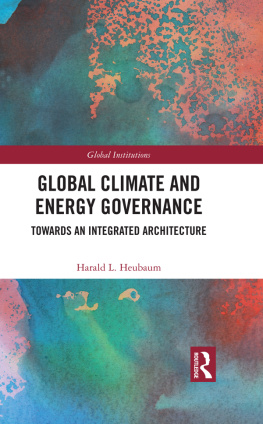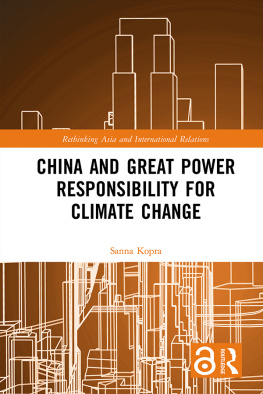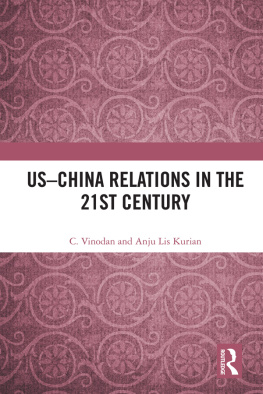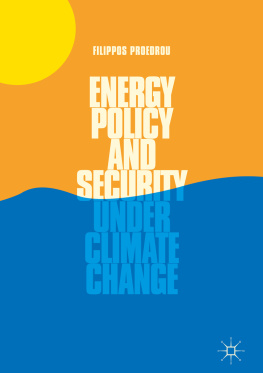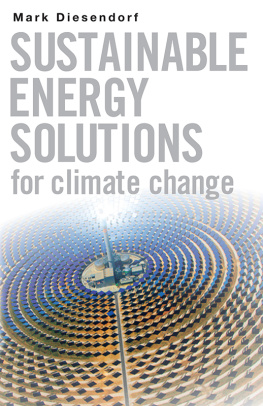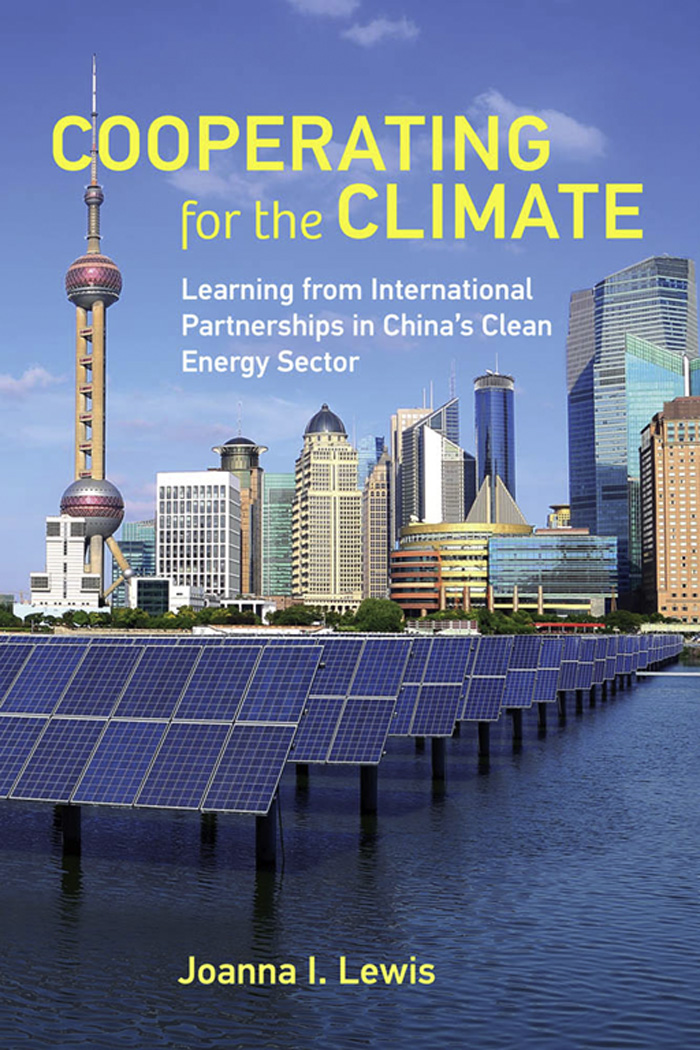
Cooperating for the Climate
Cooperating for the Climate
Learning from International Partnerships in Chinas Clean Energy Sector
Joanna I. Lewis
The MIT Press
Cambridge, Massachusetts
London, England
2023 Joanna I. Lewis
All rights reserved. No part of this book may be reproduced in any form by any electronic or mechanical means (including photocopying, recording, or information storage and retrieval) without permission in writing from the publisher.
The MIT Press would like to thank the anonymous peer reviewers who provided comments on drafts of this book. The generous work of academic experts is essential for establishing the authority and quality of our publications. We acknowledge with gratitude the contributions of these otherwise uncredited readers.
This book was set in ITC Stone Serif Std and ITC Stone Sans Std by New Best-set Typesetters Ltd.
Library of Congress Cataloging-in-Publication Data
Names: Lewis, Joanna I., author.
Title: Cooperating for the climate : learning from international partnerships in Chinas clean energy sector / Joanna I. Lewis.
Description: Cambridge, Massachusetts : The MIT Press, 2023. | Includes bibliographical references and index. | Summary: An accessible yet in-depth analysis of recent developments in US-China clean energy collaboration, the most important bilateral relationship in the world interms of climate change Provided by publisher.
Identifiers: LCCN 2022011633 (print) | LCCN 2022011634 (ebook) | ISBN 9780262544825 (paperback) | ISBN 9780262372657 (epub) | ISBN 9780262372640 (pdf)
Subjects: LCSH: Clean energyChina | Clean energyInternational cooperation. | ChinaForeign economic relations.
Classification: LCC HD9502.5.C543 C654 2023 (print) | LCC HD9502.5.C543 (ebook) | DDC 333.790951dc23/eng/20221025
LC record available at https://lccn.loc.gov/2022011633
LC ebook record available at https://lccn.loc.gov/2022011634
10987654321
d_r0
For Madeleine
Contents
Acknowledgments
I have had many opportunities throughout my career both to participate directly in climate change and clean energy cooperation with China and to be a close observer of numerous other collaborations. I am grateful to the many people in China, the US, and around the world who made these experiences and this research possible.
In Washington and around the country, I am grateful to the colleagues I have met who are dedicated to learning about China and to US-China cooperation, and who have inspired my work over too many lunches, dinners, and workshops to count. This includes Melanie Hart, Taiya Smith, Jennifer Turner, Daniel Wright, Kelly Sims Gallagher, Pete Ogden, Billy Pizer, Carla Freeman, Jane Nakano, and many others. I am grateful to the countless current and former government officials who have granted me access to, and helped me understand the inner workings of, cooperation processes, including Casey Delhotal, Robert Sandoli, David Sandalow, Jonathan Pershing, Todd Stern, Dan Reifsnyder, David Turk, Arlene Fetizanan, Tsering Dhongtog, Maria DeGulian, Vance Wagner, Callan Ordoyne, Mahlet Mesfin, Allison Schwier, Ian Lloyd, Kristin Burke, Griff Thompson, Susan Thornton, Melanie Nakagawa, Helena Fu, Erica Thomas, Mark Cohen, Larry Lian, and Robert Marlay. This work would not have been possible without the numerous invitations that have been extended to me over the years to attend official bilateral meetings of US-China partnerships. I thank the current and former group members of the China Energy Group at Lawrence Berkeley National Laboratory for providing a wonderful place to work during my graduate training and for continuing to facilitate my research including Lynn Price, Nan Zhou, David Fridley, Jiang Lin, Hongyou Lu, Carolyn Szum, Brian Heimberg, Wei Feng, Nina Khanna, and Stephanie Siehr. Thank you to Stacy Baird and Dennis Bracey for bringing me in to collaborate on the CERCs intellectual property rights framework and trainings.
In China, I am grateful to my collaborators at Tsinghua University, particularly Professor Zhang Xiliang, who hosted me when I was completing my Ph.D. research many years ago. He continues to be a gracious and generous mentor and supporter of my work, connecting me with his vast network of climate and energy experts across China and around the world and doing the same for the students I have sent his way. In Beijing I have received valuable insights from numerous experts on clean energy cooperation over the years, including Wang Yang, Lu Hong, Li Shuo, Flora Kahn, Zou Ji, Shenyu Belsky, Alvin Lin, Lee Kane, Liu Dehua, Ilan Cuperstein, Kaare Sandholdt, Cathryn Hlavka, Damares Montes, Kazuhiki Aoki, Will Latta, and many other colleagues from the Energy Foundation China, Natural Resources Defense Council (NRDC) China, Greenpeace China, and from numerous other Chinese and international organizations. I am also grateful to experts from California, Copenhagen, and beyond who have informed my work over the past several years, including Dan Kammen, Jonathan Sinton, Ryan Wiser, Jan Hamrin, Fan-Ting Cheng, Jorgen Delman, Birte Holst Jrgensen, Anton Beck, Ken Lieberthal, Andrew Light, Fan Dai, Matt Baker, and Ailun Yang.
I am especially grateful to the many colleagues who provided feedback on this project along the way, including at Denis Simons 2014 conference on Chinas science and technology cooperation at Arizona State University and at the 2016 roundtable on Chinas science, technology, and innovation in Ottawa (with special thanks to Audrey Winter for getting us back to Washington in a snowstorm!). Thank you to Bentley Allan, Jonas Nahm, and several anonymous reviewers for their insightful comments on earlier drafts of the book, and to Laura Edwards for proofreading it.
This book has benefited from contributions over the years from numerous undergraduate and graduate student research assistants at Georgetown University who conducted research for this project and helped build the database of bilateral agreements. In alphabetical order, they are Alexandra Donovan, Ellen Ebert, Yasmin Fouladi, Margaret Gach, Phillip Hah, Feiyang Han, Margaret Jackson, Xiang Li, Mi Lu, Xinyu Lu, Youqiao Lyu, Wei Wang, Yanhong Xu, Hong Yang, and Laqiqige Zhu; visiting doctoral students Daisuke Hayashi (the University of Zurich) and Yuyan Weng (Tsinghua University) also contributed to this effort. The research for the book was supported by funding from the National Science Foundation (grant no. 1262452), the Woodrow Wilson International Center for Scholars, the Energy Foundation China, the Rockefeller Brothers Fund, and Georgetown University.
Thank you to Beth Clevenger and Anthony Zannino of the MIT Press for being patient as my deadline for completing this book was delayed by the birth of my daughter. Ultimately it took a global pandemic and lockdown for me to finally have the time to complete the manuscript, thanks to my husband and our amazing babysitter, Abby Chepenik.
Meeting my husband, Dwight, and starting a family delayed this project several years but I wouldnt have had it any other way. I thank my husband and family-in-law, and my parents and sister, for their unconditional love and support.
This book is dedicated to my daughter, Madeleine Lewis Yang. While it will be some years before she understands Mamas work, I hope I am modeling a love for both family and career that she may aspire to one day.
1
Cooperating for the Climate
Differences and problems among countries, hardly avoidable, need to be handled through dialogue and cooperation on the basis of equality and mutual respect. One countrys success does not have to mean another countrys failure, and the world is big enough to accommodate common development and progress of all countries. We need to pursue dialogue and inclusiveness over confrontation and exclusion.
Next page

